Do the drains in your plumbing system regularly become clogged? A clogged drain can result in a significant disruption to your life. Doing dishes or showering can become almost impossible when your drains stop flowing. If you are battling blockages in your drains, turn to a team of service professionals you can trust. Mr. Rooter Plumbing of Berkshire County offers residential clogged drain services in Adams, Massachusetts. We use advanced equipment and techniques to break up or remove clogs. Learn more about how we fix clogged drains.
How Can You Tell Your Drains Are Clogged?
When a drain is clogged, it can be a major inconvenience. That is why it is best to call the professionals before your drains become entirely obstructed. Mr. Rooter Plumbing of Berkshire County educates homeowners on the ways to prevent clogs from forming. The best way to avoid a clog is to constantly be on the lookout for the early warning signs of a clog. Some of the most common symptoms of an impending clog include the following:
- Drains that smell foul
- Backed-up toilets
- Toilets that gurgle or bubble when they are flushed
- Slow-draining sinks
- Unusually wet areas of your lawn
- Finding spots of water on the floor around your bathtub, sink, shower, or laundry appliances
How Can I Prevent Clogged Drains?
Mr. Rooter Plumbing of Berkshire County’s service professionals is experienced enough to deal with any clog in any of your home’s drains, from a clogged shower drain to a clogged floor drain. Sometimes we may just need to perform drain cleaning. Other times, we might need to perform extensive plumbing repairs. There are some ways to reduce the likelihood of clogs forming in each drain. Below, you can find a breakdown of the most common sources of clogs in each drain and some tips for preventing them. The drains in the average home include:
- Bathroom Drains – Bathrooms usually have at least three drains: the sink, the bathtub/shower, and the toilet. Hair, soap, toothpaste, and other forms of waste cause frequent clogs in bathroom drains. Using a hair trap can significantly reduce clogs related to hair going down your shower drain. You should also try to run hot water for a minute or two after brushing your teeth to wash away all the toothpaste and prevent it from hardening within your pipes.
- Kitchen Drains – When we find clogged kitchen drains, the problem can frequently be traced back to grease, oil, fat, or food particles. These materials clump together and solidify into the worst clogs. The best defense here is to throw these materials in the trash instead of flushing them down the drain. Additionally, avoid putting tough or fibrous foods, such as meat or bones, down your garbage disposals.
- Floor Drains – We all know basement and garage floors become littered with dust, dirt, and pet hair. When water flows across your floor and down the drain, it picks up all these particles and takes them with it. The best way to keep floor drains from becoming clogged is to keep the floor around them clean.
Tips for Getting Your Drains Flowing Again
We generally warn homeowners against attempting to remove clogs on their own with a chemical drain clog remover from your local hardware store. However, we know that sometimes you need to get a drain flowing again in a hurry. In those cases, here are a few ways to address a clogged drain:
- Boiling water can work like a charm when the clog is a buildup of oil or toothpaste. Let the drain empty as much as possible. Then, boil a pot of water and pour it down the drain. You may need to repeat this process a few times to get the drain flowing again.
- For clogs of hair, toilet paper, or food scraps, a snake and plunger can often do the trick. Fill the sink with a little bit of water. Then, use the plunger to pull the clog closer to the drain. Finally, use a snake to pull the clog from the drain piece by piece. Dispose of the clog-causing materials in the trash.
- Whether or not these methods get your drains flowing again, you should call Mr. Rooter Plumbing of Berkshire County to have your drains thoroughly cleaned. When clogs form, it is often a sign of a deeper problem causing the clogs, which might need professional expertise.
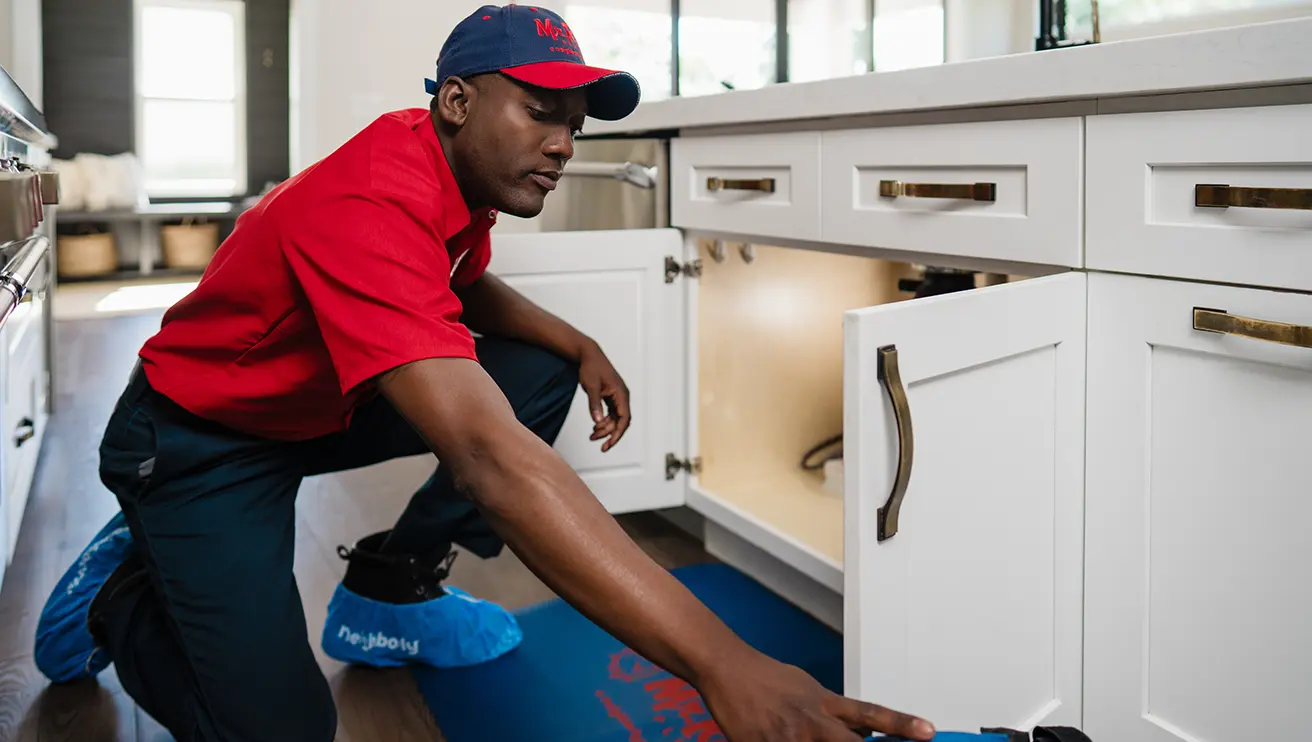
Residential & Commercial Services
-
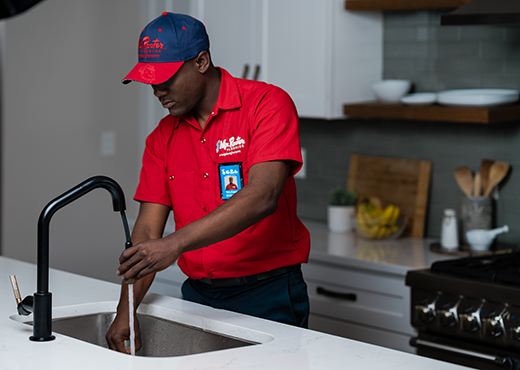
Drain Cleaning
Let Mr. Rooter get rid of your kitchen, bathroom, and sewer clogs.Learn More Drain Cleaning -
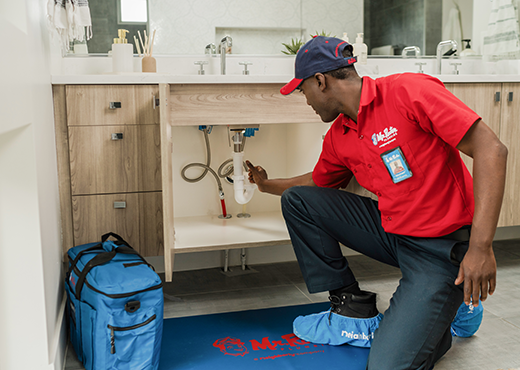
Plumbing Repairs
Schedule a repair before a small leak becomes a big headache.Learn More Plumbing Repairs -
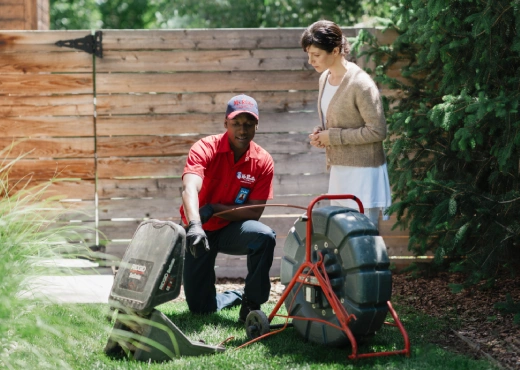
Sewer Line Repair
Avoid a costly sewer replacement with a sewer line repair.Learn More Sewer Line Repair -
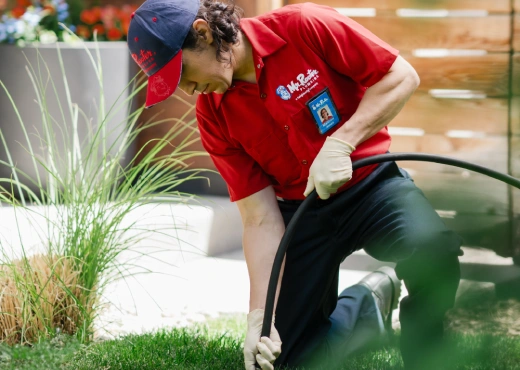
Emergency Plumbing
Emergencies happen, and Mr. Rooter helps solve them quickly.Learn More Emergency Plumbing
Mr. Rooter Plumbing of Berkshire County
Choose the plumbing services team in your area. When it comes to selecting the right team for your commercial or residential plumbing services, Mr. Rooter Plumbing is the right choice.
- Adams
- Ashley Falls
- Becket
- Berkshire
- Cheshire
- Dalton
- Drury
- East Otis
- Glendale
- Great Barrington
- Hinsdale
- Housatonic
- Lanesborough
- Lee
- Lenox
- Lenox Dale
- Mill River
- Monterey
- North Adams
- North Egremont
- Otis
- Pittsfield
- Richmond
- Sandisfield
- Savoy
- Sheffield
- South Egremont
- South Lee
- Southfield
- Stockbridge
- Tyringham
- West Stockbridge
- Williamstown
- Windsor
Services We Provide
Let Us Call You

Join Our Team
Plumbing isn’t just about leaks, pipes, and gaskets - it’s about people. Mr. Rooter Plumbing franchisees offer you a career path for growth, and will treat you with the same respect and integrity that they treat their own friends and family, because at the end of the day, you can’t serve customers well without a happy, motivated, and committed team. Creating a culture with an exemplary work ethic is just as important as plumbing, and it’s part of everything Mr. Rooter Plumbing does.
